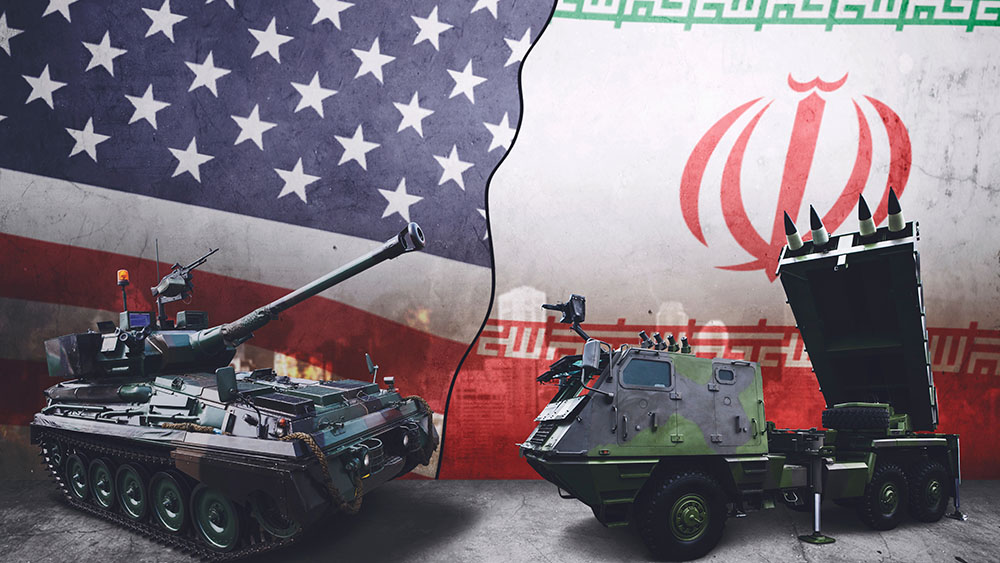
Mohammad Marandi, a senior member of Iran's nuclear negotiating team, has threatened to "wipe out" every American military base in the Middle East if the United States were to join Israel in an attack on Iran.
This threat follows the recent assassination of Hamas leader Ismail Haniyeh in Tehran, which Iran claims is a provocation that justifies a large-scale offensive against Israel.
Marandi, an advisor to Iran's nuclear negotiating team, stated in an interview, "If the United States gets involved in any attack on Iran, have no doubt that the U.S. will be wiped out in Iraq and the U.S. bases in the Persian Gulf region will be destroyed. The regimes that host these U.S. bases will also face destruction."
Iran's regional proxies in Yemen and Iraq have a history of targeting U.S. positions across the Middle East, with hundreds of strikes in recent years, particularly escalating after the Hamas attack on October 7. (Related: U.S. to boost military presence in Middle East following rocket attack on Al-Asad Airbase in Iraq.)
Following Haniyeh's killing, the Biden administration has been intensifying diplomatic efforts to mitigate Iran's response. U.S. officials remain cautiously optimistic about the effectiveness of their mediation. However, Iranian officials are signaling a forthcoming missile and rocket bombardment of Israel.
Marandi warned: "Iran has no option but to strike Israel even though we do not want a regional war. So, the smart thing for the Americans is to be very careful about their actions."
In preparation for a potential strike, Iranian state media reported that the military has begun deploying "radar, missile and drone capabilities" throughout the country.
Russia sends advanced air defense systems and sophisticated radars to Iran
Russia has also assisted Iran by providing advanced air defense systems and sophisticated radars. Russian security official Sergei Shoigu visited Tehran earlier this week, coinciding with the delivery of these weapons.
It is believed that Iran possesses advanced ballistic missiles and drones capable of penetrating Israel’s Iron Dome defense system, which was already stretched thin earlier this year when Iran launched an unprecedented missile barrage at the Jewish state, thwarted with support from the United States and Arab nations.
Meanwhile, the Biden administration continues to call for calm and de-escalation.
Secretary of State Antony Blinken emphasized the need for all parties to carefully consider the situation and avoid exacerbating tensions. "It's urgent that everyone in the region take stock of the situation, understand the risk of miscalculation and make decisions that will calm tensions, not worsen them," Blinken stated. "We've been engaged in intense diplomacy with allies and partners, communicating this message directly to Iran and Israel."
President Joe Biden reportedly had a tense phone conversation with Israeli Prime Minister Benjamin Netanyahu, telling him to "stop bullshitting me."
The U.S. believes that Israel’s recent actions, including the killing of top Hezbollah and Hamas commanders, are complicating efforts to broker a ceasefire.
In response, Netanyahu’s office remarked that the Israeli leader expects the United States to refrain from interfering in Israeli politics, highlighting the complex and fraught nature of the ongoing situation.
Watch this Aug. 5 episode of "Brighteon Broadcast News" as host Mike Adams, the Health Ranger, discusses how an escalation of the brewing conflict between Iran and Israel will draw in China and Russia on the side of Tehran.
This video is from the Health Ranger Report channel on Brighteon.com.
More related stories:
U.S. on high alert as Iran's proxies threaten retaliation following Israeli strikes.
Israeli Prime Minister Netanyahu calls for U.S.-Israel alliance to combat "Iranian threat."
Sources include:
Please contact us for more information.















